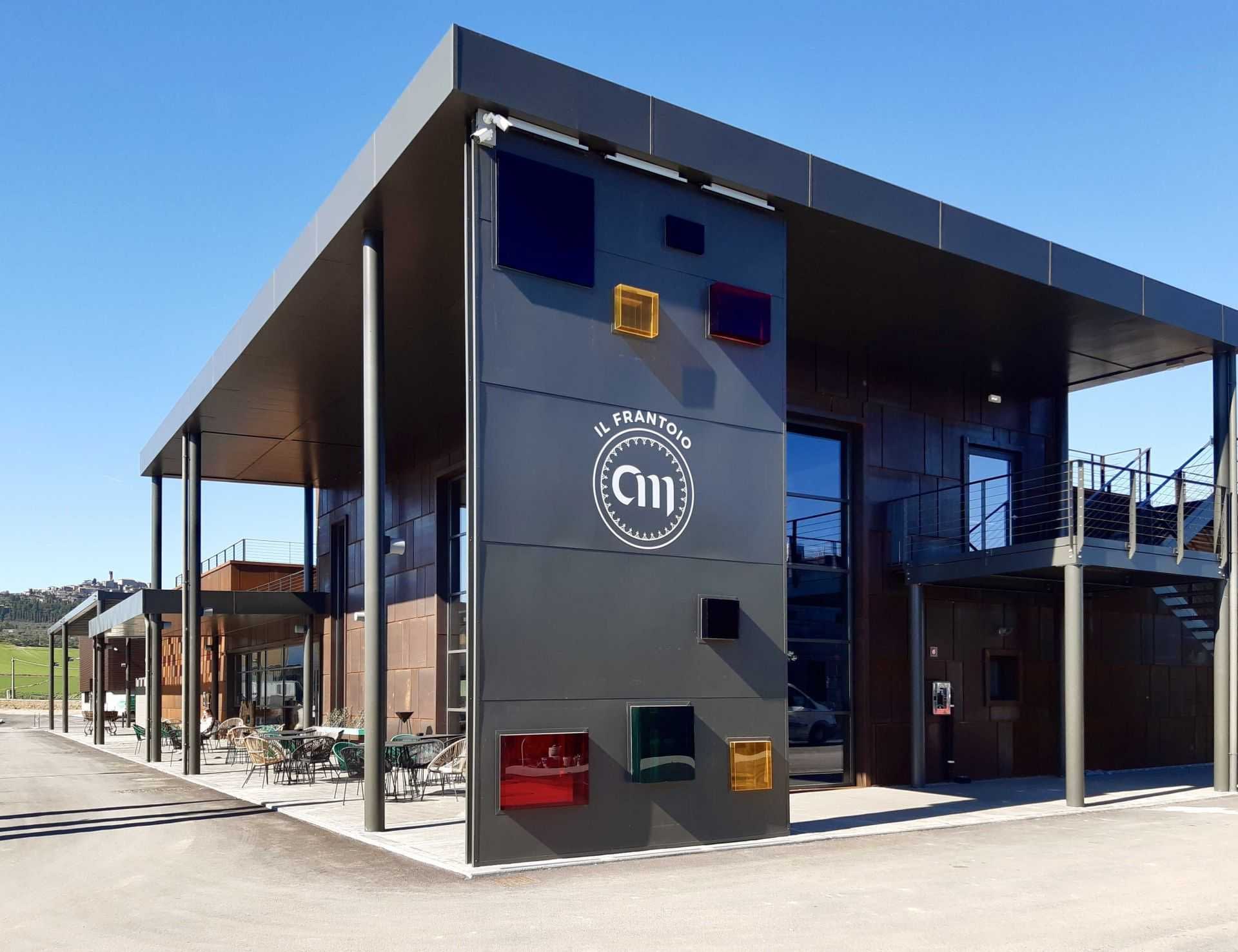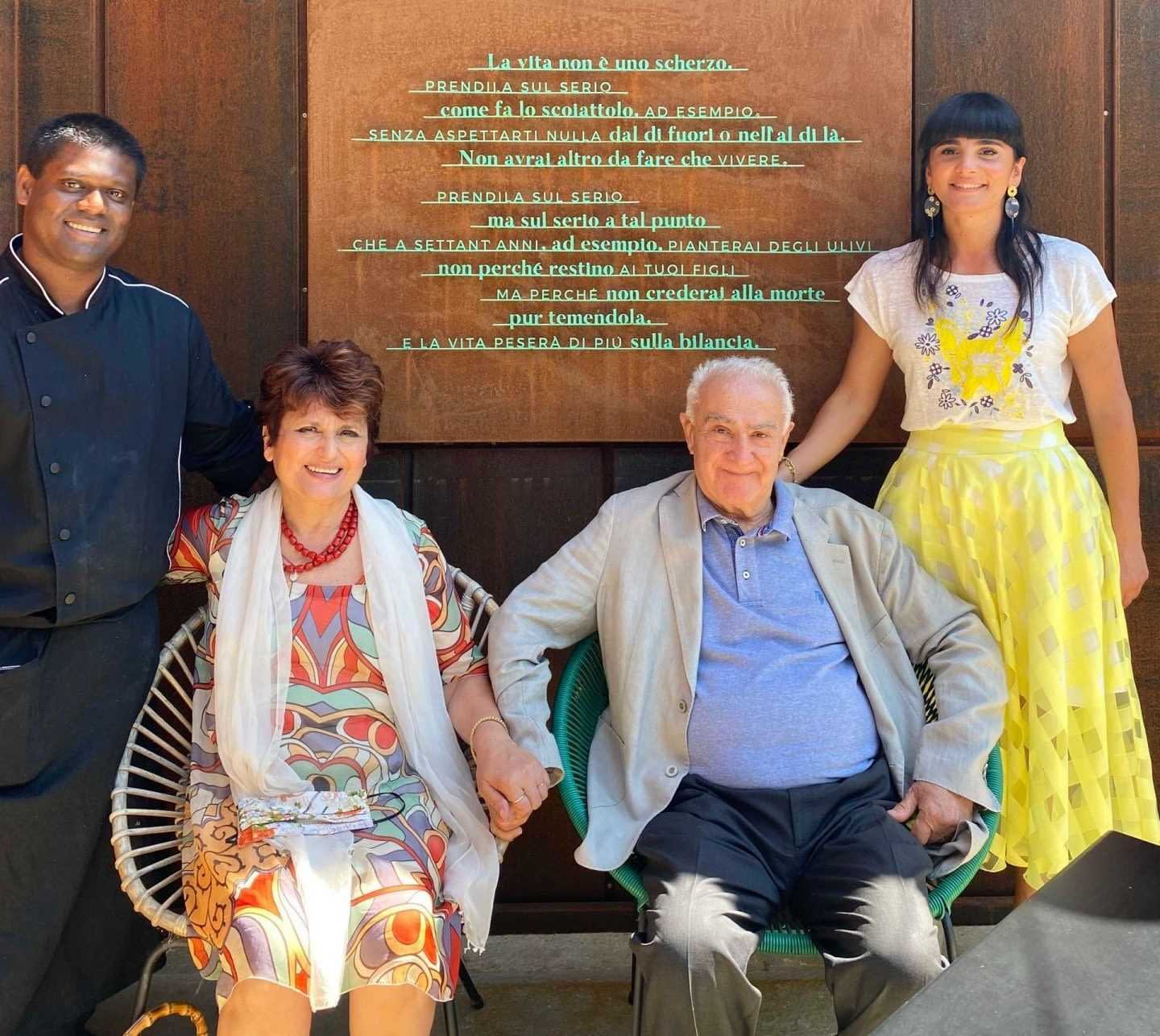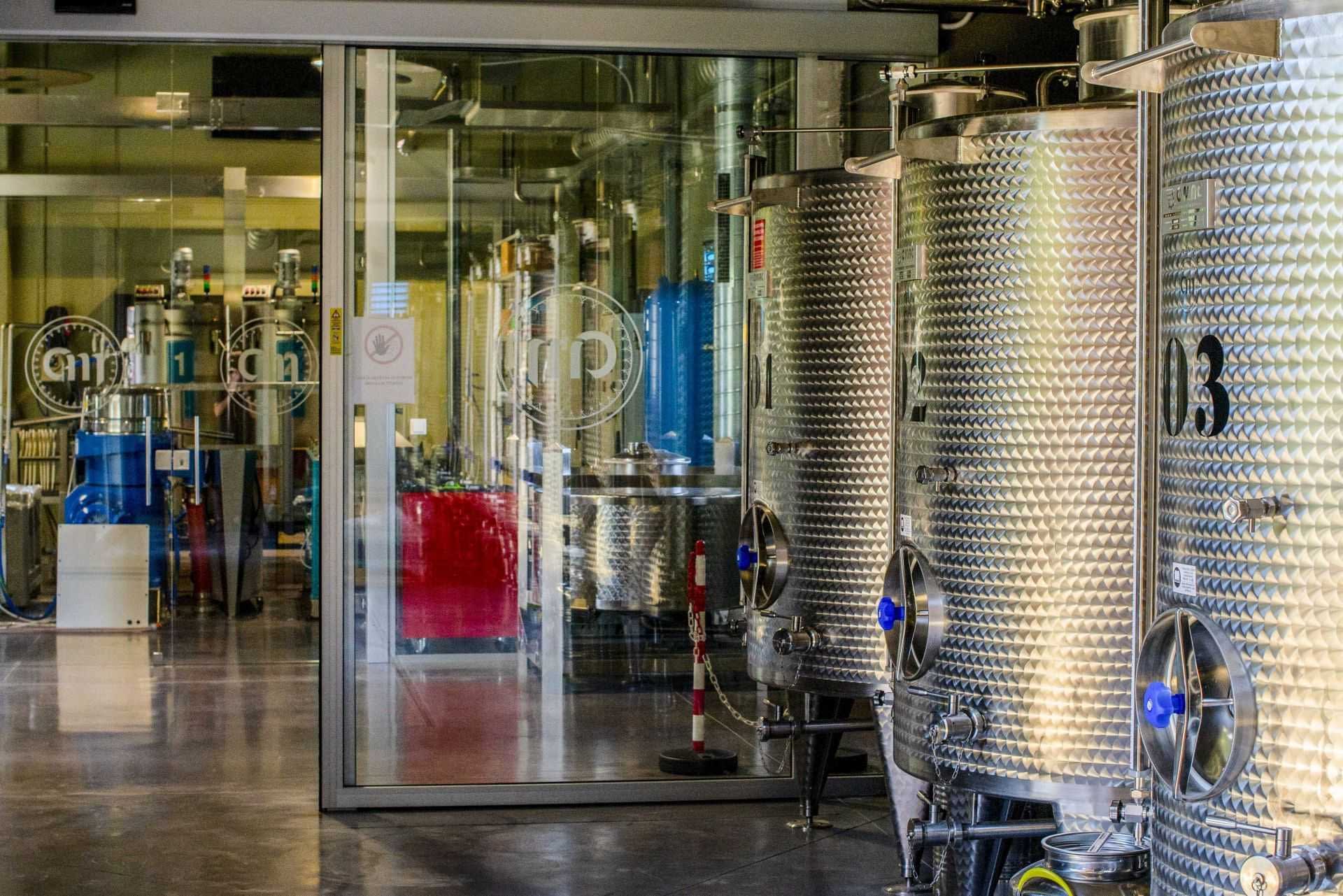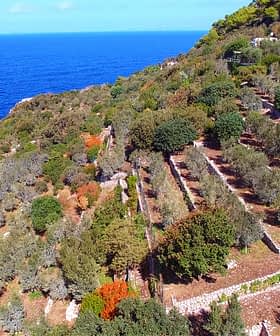Dedication to the land combined with an emphasis on beauty, design, technology and environment serves as the creed of the Cinaglia family.
The family is one half of the force behind Centumbrie. This young but experienced company is flourishing in the verdant hills surrounding Trasimeno Lake, a breathtaking location in the central Italian region of Umbria.
Along with growing 30 hectares of olive groves on their 140-hectare estate, the Cinaglia family has a diverse and organic agricultural portfolio, maintaining the native forest and greenhouses while growing wheat, legumes and other types of fruit and raising poultry and cattle.
Along with their focus on high-quality agricultural production, the family has restored its ancient farmhouses to serve as guest accommodations, focusing on ambitious architecture that blends innovation and hospitality.
See Also:Producer ProfilesThese efforts, the family emphasized, focus on beauty and design, offering tourists some of the region’s most enchanting views together with a farm-to-table food culinary experience. However, owner Miriam Cinaglia told Olive Oil Times that it did not happen overnight.
“We started by restoring the farmhouses and ancient buildings surrounded by those beautiful olive groves,” she said. “Over time, we teamed up with local young professionals and transformed the olive groves into a high-quality olive oil production project. This is how the Centumbrie company was born.”
One of the first steps of the project was to construct a new mill, which was an architectural and design experiment conceived to allow the olive transformation process to happen in a location shared with a shop and a trendy restaurant.

Restaurant, tasting room and mill are all contained within Centumbrie’s new and modern building.
“The COVID-19 pandemic forced us to suspend our bistro operations,” Cinaglia said. “But visitors can still witness the mission of our company, which is to offer a range of high-quality products from this beautiful territory to our customers.”
Another part of her family’s mission is to emphasize the quality and traceability of everything they offer.
“With Centumbrie, you can count on a short supply chain, local products, extra virgin olive oil processed by the most advanced machinery and recognized professionals,” she said. “It’s a way to let the world appreciate Umbria’s treasures.”
Olive oil production is essential to the farm’s operations and last year, Centumbrie’s monocultivar Frantoio won a Gold Award at the NYIOOC World Olive Oil Competition.
See Also:Best Olive Oils From ItalyAlong with Frantoio, the family also grows Moraiolo and Leccino olives, both of which contribute to the production of their PDO Umbria Colli del Trasimeno.
The family also grows the rare Dolce Agogia cultivar, which is endemic to the eastern shores of Trasimeno Lake and holds a very special place in their hearts.
While several legends surround its ancient past, Dolce Agogia might have been named because it used to be harvested very late in the season, Cinaglia said, so that olives with lower levels of polyphenols would taste sweeter.
“Dolce Agogia is the focus of one of our latest initiatives, which combine our ancient olive oil with the evocative ancestral pottery of our local partner, the Endiadi ceramic artists,” she added.
In a 35-second video, a ballerina dances among the olive trees to promote their limited-edition offering: L’Approdo, a monocultivar Gran Cru Dolce Agogia. The oil has already been recognized by the Slow Food Foundation as a high-quality product unique to Umbria that is at risk of extinction.
“The extra virgin olive oil is packaged in historic ceramic bottles and is available in two colors – the color of the lake or the land,” Cinaglia said.

The Cinaglia family.
She added that everyone involved in the production, from the ballerina and video crew to the ceramic artists, are young, local professionals.
While beauty and design have played a vital role in the development of Centumbrie, advanced management of the entire production chain is the foundation of the company’s extra virgin olive oil and its success.
“When we receive olives for the transformation, we first discard all the olives that do not reach our minimum quality standards,” Luca Mencaglia, Centumbrie’s mill manager and oleologist, told Olive Oil Times. “That goes both for the olives we grow and those harvested by the farmers with whom we work.”
Once only the best olives have been selected, they go on to the company’s state-of-the-art mill, which boasts two separate production lines. These allow Mencaglia to tailor the transformation process of each oil precisely.
“They are independent production lines that mostly work with specific and personalized machinery,” he said. “We can choose to use one or the other to obtain different results, needed to fulfill the requirements for our extra virgin olive oils.”
After the oil has been produced, it is stored at 16 ºC using best practices to prevent oxidation. The oils are then bottled in dark brown glass bottles entirely wrapped in the company’s label to avoid oxidation by light to the best of their abilities.

Centumbrie’s state-of-the-art mill.
Their PDO Umbria Colli del Trasimeno is even wrapped in a double black coating to preserve its contents for as long as possible.
Part of Centumbrie’s success so far has been its ability to sustainably exploit and utilize the natural beauty of the hilly landscape surrounding Trasimeno Lake. Therefore, preserving this natural beauty and protecting the environment is an essential aspect of their business plan.
Sergio Rutili, Centumbrie’s general director, told Olive Oil Times that the company sources its energy from a 300-kilowatt photovoltaic plant, which lowers its carbon footprint significantly.
“Our work is focused on the preservation of the environment,” Rutili said. “That is true in all our production processes and we even took advantage of the harsh times of this pandemic to accelerate several innovative projects, such as the reuse of olive processing wastewaters.”









